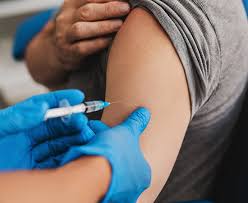
Tetanus Shot Overview: What You Need to Know About the Vaccine
Welcome to our informative guide on the tetanus shot, a crucial vaccine that safeguards against the serious bacterial infection known as lockjaw. In this article, we’ll delve into the essentials of the tetanus vaccine, exploring its benefits, recommended frequency, and potential side effects. Whether you’re due for a booster or seeking more information about this vital vaccination, we’ve got you covered. Let’s ensure you’re well-informed and protected against tetanus!

Getting vaccinated is one of the most effective ways to protect yourself from infectious diseases. One of the vaccines that you may have heard of is the tetanus shot. Tetanus, also known as lockjaw, is a serious bacterial infection that can cause muscle stiffness and spasms.
What is a Tetanus Shot?
It is a vaccine that helps prevent tetanus/lockjaw. The vaccine contains a small amount of the tetanus toxin, which stimulates the body’s immune system to produce antibodies against the bacteria that cause tetanus. The vaccine is usually given as a combination vaccine, which also includes protection against diphtheria and pertussis (whooping cough).
The Centers for Disease Control and Prevention (CDC) recommends that everyone should get vaccinated against tetanus every 10 years. However, if you have a deep or dirty wound, it’s important to get vaccinated regardless of when your last shot was. Additionally, if you’re traveling to a country where tetanus is more common, you may need to get a booster shot before you go.
What are the Side Effects of a Tetanus Shot?
Like all vaccines, it can cause side effects. The most common side effects include pain, redness, and swelling at the injection site. Some people may also experience fever, headache, and fatigue. These side effects are usually mild and go away on their own within a few days. Serious side effects are rare but can include allergic reactions.
In conclusion, getting a tetanus vaccine is an important step in protecting yourself from lockjaw. It’s recommended that everyone gets a shot every 10 years, and if you have a deep or dirty wound, it’s important to get the vaccine regardless of when your last shot was. While the vaccine can cause side effects, they are usually mild and go away on their own. If you have any concerns about getting a tetanus shot, talk to your healthcare provider.
Disclaimer: The information provided in this content is for general informational purposes only. It is not intended as medical or healthcare advice, diagnosis, or treatment. Always seek the advice of a qualified healthcare professional with any questions you may have regarding a medical condition or healthcare decisions.
















